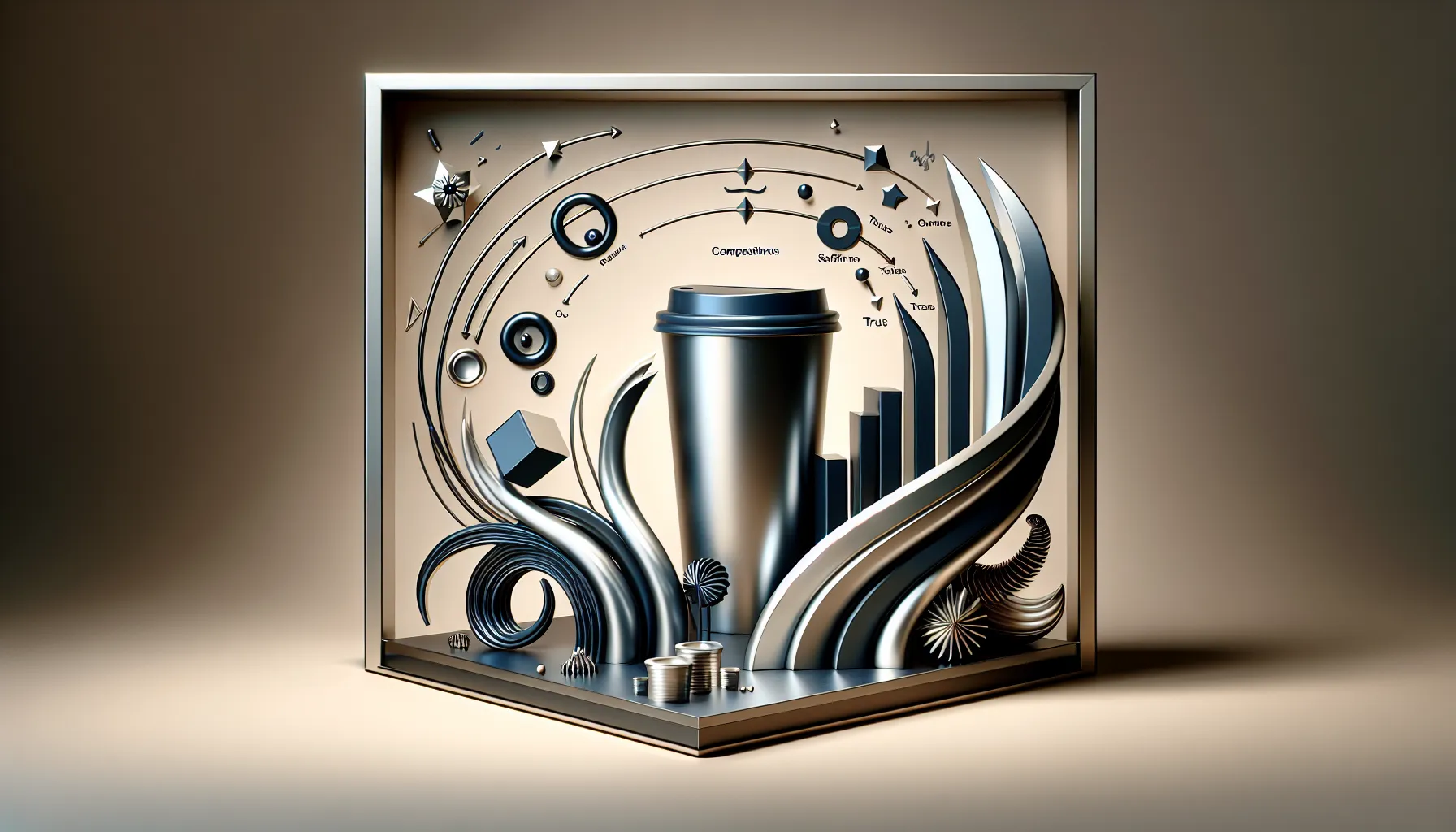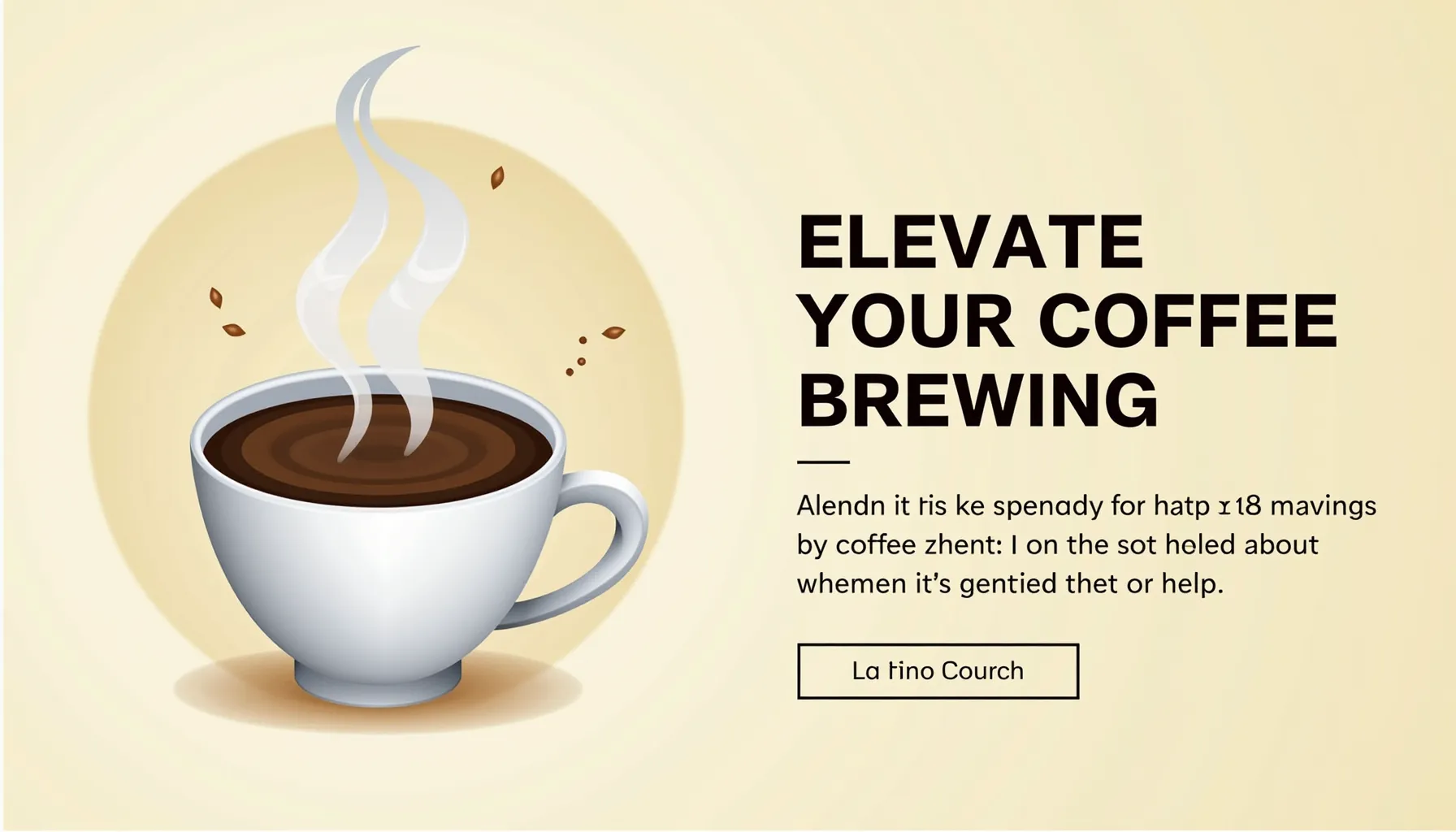"Coffee is for closers" - a phrase that has echoed through sales floors and boardrooms for decades. If you've ever been in a high-pressure sales environment, you've likely heard these words, perhaps accompanied by the clink of a mug being set down forcefully. But what does this iconic line from "Glengarry Glen Ross" really mean, and how has it shaped the world of sales?
As someone who's navigated the choppy waters of sales for years, I've seen firsthand how this simple phrase can ignite motivation or instill fear. It's more than just a line from a movie; it's become a cultural touchstone that encapsulates the cutthroat nature of sales and the relentless pursuit of success.
In this article, we'll dive deep into the origins of "coffee is for closers," explore its impact on sales culture, and examine how it's evolved in today's digital marketplace. Whether you're a seasoned sales pro or just starting out, understanding this phrase is key to navigating the complex world of modern sales.
So grab your coffee (whether you've earned it or not), and let's unpack this sales mantra that's stood the test of time.
Key Takeaways:
- Origin and impact of "coffee is for closers" in sales culture
- The pros and cons of the "Always Be Closing" mentality
- Modern sales strategies that go beyond aggressive tactics
- Redefining success in sales for the 21st century
- The evolution of the "closer" in today's market landscape

The Cultural Phenomenon of "Coffee is for Closers"
Alec Baldwin's Iconic Scene Breakdown
Picture this: A suit-clad Alec Baldwin storms into a dingy real estate office, emanating an aura of success and intimidation. His character, Blake, is about to deliver a speech that would forever change the landscape of sales motivation.
In this electrifying scene from "Glengarry Glen Ross," Baldwin's character berates a group of struggling salesmen, introducing the infamous "ABC" mantra - Always Be Closing. The intensity of his delivery, coupled with the raw desperation of the salesmen, creates a perfect storm of emotion that resonates with anyone who's ever felt the pressure to perform.
The Phrase's Adoption in Sales and Popular Culture
Since its debut, "coffee is for closers" has transcended the silver screen, becoming a rallying cry in sales departments worldwide. It's plastered on motivational posters, referenced in countless sales meetings, and even parodied in pop culture.
This phrase has become shorthand for the cutthroat nature of sales, embodying both the thrill of success and the fear of failure. Its widespread adoption speaks to a universal truth in sales: results matter, and only the strong survive.
Psychological Impact on Salespeople and Motivation
The psychological impact of "coffee is for closers" is profound and multifaceted. On one hand, it can be a powerful motivator, pushing salespeople to strive for excellence and overcome obstacles. The promise of reward (symbolized by coffee) for achievement taps into basic human psychology.
However, this mentality can also create intense pressure and anxiety. The implication that only "closers" deserve basic amenities like coffee can foster a toxic work environment, leading to burnout and unethical behavior in the pursuit of sales at any cost.
Deconstructing the "Always Be Closing" Mentality
The Pros and Cons of Aggressive Sales Tactics
The "Always Be Closing" (ABC) approach has its merits. It instills a sense of urgency and can drive impressive short-term results. Salespeople who embody this mentality often exude confidence, which can be attractive to potential clients.
However, the downsides are significant. Aggressive tactics can alienate customers, damage long-term relationships, and create a high-stress work environment. In today's market, where information is readily available, pushy sales techniques often backfire, leaving customers feeling manipulated.
Ethical Considerations in High-Pressure Sales Environments
The ethical implications of high-pressure sales tactics are increasingly scrutinized. While the "coffee is for closers" mentality might drive results, it can also encourage dishonesty and manipulation. Salespeople might feel compelled to oversell, misrepresent products, or pressure customers into decisions they're not ready to make.
This raises important questions about the responsibility of businesses to their customers and employees. Is a sale worth sacrificing integrity? How do we balance the need for results with ethical considerations?
Balancing Ambition with Sustainable Business Practices
The key lies in finding a middle ground. Successful modern sales strategies incorporate the drive and ambition of the "closer" mentality while emphasizing sustainable, ethical practices. This might involve setting realistic targets, prioritizing customer satisfaction over immediate sales, and fostering a supportive team environment.
By balancing ambition with sustainability, businesses can create a sales culture that drives results without burning out employees or alienating customers. It's about playing the long game, building relationships, and creating value beyond the immediate sale.
Modern Sales Strategies: Beyond the Coffee
Relationship-building in the Digital Age
In today's hyper-connected world, the art of sales has evolved far beyond the aggressive tactics of yesteryear. The digital age has ushered in a new era of relationship-building, where trust and value creation take center stage.
Modern salespeople understand that long-term success hinges on cultivating genuine connections. They leverage social media, personalized content, and data-driven insights to engage prospects meaningfully. It's no longer about the hard sell; it's about becoming a trusted advisor in your client's journey.
Value-based Selling Approaches
Gone are the days when simply closing a deal was enough. Today's top performers focus on value-based selling, aligning their offerings with the client's specific needs and pain points. This approach requires a deep understanding of the customer's business and industry landscape.
By demonstrating how your product or service can solve real problems and drive tangible results, you're not just selling – you're providing solutions. This shift from transactional to consultative selling creates win-win scenarios that foster long-term partnerships.
The Role of Data and Analytics in Closing Deals
In the modern sales landscape, data is king. Advanced analytics tools provide unprecedented insights into customer behavior, preferences, and buying patterns. Savvy sales professionals leverage this data to tailor their approach, timing their outreach for maximum impact.
From predictive lead scoring to AI-powered sales forecasting, technology empowers salespeople to work smarter, not harder. By harnessing the power of data, today's closers can anticipate needs, personalize their pitch, and dramatically increase their chances of success.
Redefining Success in Sales
Shifting from Transaction-focused to Client-centric Models
The old adage "always be closing" is giving way to a new mantra: "always be helping." This shift represents a fundamental change in how we measure success in sales. Instead of focusing solely on closed deals and revenue figures, forward-thinking organizations are prioritizing customer satisfaction and long-term value creation.
This client-centric approach involves understanding the customer's journey, anticipating their needs, and providing ongoing support beyond the initial sale. It's about building a relationship that extends far beyond the transaction, fostering loyalty and repeat business.
Key Performance Indicators Beyond Closed Deals
While closing deals remains crucial, modern sales teams are expanding their definition of success. New KPIs are emerging that paint a more holistic picture of sales performance. These might include customer lifetime value, net promoter scores, or engagement metrics.
By focusing on these broader indicators, companies can better align their sales efforts with long-term business goals. It's not just about making the sale; it's about creating sustainable growth and building a strong, loyal customer base.
Cultivating a Positive Sales Culture for Long-term Success
The high-pressure, cutthroat sales environment immortalized in "Glengarry Glen Ross" is increasingly seen as counterproductive. Progressive organizations are fostering a more positive, collaborative sales culture that emphasizes teamwork, continuous learning, and ethical practices.
This shift involves investing in employee development, celebrating team successes, and creating an environment where salespeople feel supported rather than pitted against each other. By nurturing a positive culture, companies can reduce turnover, boost morale, and ultimately drive better results across the board.

Brewing Success: The New Era of Closers
As we've journeyed through the world of "coffee is for closers," it's clear that the landscape of sales has evolved dramatically. The aggressive, win-at-all-costs mentality immortalized in "Glengarry Glen Ross" has given way to a more nuanced, relationship-driven approach.
Today's successful closers aren't just chasing the next deal; they're building lasting partnerships, leveraging data to provide real value, and fostering a positive sales culture that benefits everyone involved. The coffee may still be brewing, but it's no longer reserved for just the closers – it's shared among teams collaborating to create sustainable success.
As we look to the future, it's crucial to remember that while the methods may change, the core principles of dedication, perseverance, and adaptability remain constant. The modern closer is as much a consultant and problem-solver as they are a salesperson. By embracing this evolution, we can create a sales environment that's not only more effective but also more fulfilling for both professionals and clients alike.
So, whether you're a seasoned sales veteran or just starting your journey, remember: in today's world, coffee isn't just for closers – it's for innovators, relationship builders, and those who understand that true success in sales is measured by more than just numbers on a board.
FAQ
Q1: What does "coffee is for closers" really mean in today's sales world?
While originally a harsh motivational tactic, today it symbolizes the drive for success in sales. Modern interpretation focuses on earning rewards through building relationships, providing value, and achieving sustainable results rather than just closing deals at any cost.
Q2: How can I balance aggressive sales tactics with ethical considerations?
Focus on value-based selling approaches that align your offerings with client needs. Prioritize long-term relationships over quick wins. Use data-driven insights to personalize your approach and demonstrate genuine solutions to customer problems.
Q3: What are some key performance indicators for modern sales success beyond closed deals?
Look at customer lifetime value, net promoter scores, and engagement metrics. These KPIs offer a more holistic view of sales performance, emphasizing customer satisfaction and long-term business growth over short-term transaction numbers.
Q4: How has technology changed the "always be closing" mentality?
Technology has shifted the focus from constant closing to smart, data-driven strategies. CRM systems, AI-powered analytics, and social selling tools allow salespeople to work more efficiently, targeting the right prospects at the right time with personalized approaches.
Q5: What skills should I develop to become a successful "closer" in today's market?
Develop strong relationship-building skills, emotional intelligence, and adaptability. Focus on becoming a trusted advisor by deeply understanding your industry and clients' needs. Embrace continuous learning, especially in areas of data analysis and digital communication tools.












